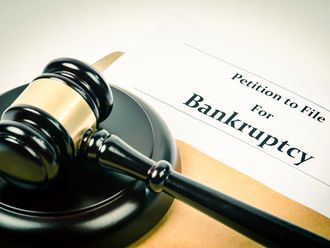A golden day in the history of the UAE passed off with no fanfare when Abu Dhabi’s partnership arrangements with four oil majors completed its full term of 75 years last week. There were hardly any celebrations and even the media coverage was low-key.
On January 11, 2014, the nearly 40 per cent equity in Abu Dhabi’s main oil producer Abu Dhabi Company for Onshore Oil Operations (Adco) held by ExxonMobil, Royal Dutch Shell, Total and BP got vested with state-owned Abu Dhabi National Oil company (Adnoc), giving it full control of the emirate’s oil sector.
The landmark date may or may not lead to radical change in the production sharing and ownership arrangement between Abu Dhabi government and the global oil majors, but it will be noted for the successful conclusion of one of the most stable and mutually beneficial partnerships in the history of the oil industry. The stability was not just in the relationship between the two sides, it has also had a bearing on the state of the world oil market.
This does not mean that the partnership did not go through any process of evolution. It did evolve over time, reflecting the changes in approaches to ownership and benefit-sharing that occurred throughout the region. But these have taken place in an organic manner without causing any trouble to the relationship. There were never any violent policy changes, such as nationalisation or arbitrary seizure of assets as it happened in some countries, including in Iran with its far-reaching economic and political implications.
75-year agreement
Abu Dhabi signed the 75-year agreement in January 1939, which allowed Western oil companies to explore and produce oil in return for various considerations, including payment of royalties. Although exploration started in 1950, the drilling of the first well was a failure. But with the discovery of the Bab field in 1954, Abu Dhabi began to emerge on the oil scenario. In early 1970s, the emirate’s government acquired a 60 per cent share in the operations, which led to the establishment of Adco in 1978.
Today, Abu Dhabi boasts one of the most successful and efficient exploration programmes, making the UAE one of the world’s major oil producers with access to the fourth largest proven reserves. Adco fields produce around 1.5 million barrels a day of crude out of a total UAE production of around 2.75 million bpd. Now by virtue of 100 percent ownership of Adco’s interests, Adnoc has full control.
The development of the oil industry has helped transform a society of modest means, mostly based on agriculture, fishing, pearl diving and seafaring, to a modern industrial economy.
All eyes are now on the likely arrangement that Abu Dhabi will negotiate with the existing partners or whether it will scout for new partners in the wake of a major realignment that is taking place in the world oil market. The expiry of the original agreement means that the existing partners have to pay additional premium to the quantities that they lift from Abu Dhabi’s fields.
That the existing agreement has been allowed to expire without any extension being announced or new arrangements put in place obviously means that the government is weighing all options. No one is predicting a complete pullout by any of the existing players as the technology partnership is expected to continue without any major change, especially as some of the companies are committed to further technological involvement in respect of the Abu Dhabi oil fields. Only last year, Shell was awarded a $10 billion project to handle toxic gas.
What is of special interest in the new situation is the likely involvement of some of the Asian players, including China and South Korea, with Abu Dhabi’s oil development programmes as market dynamics have witnessed a clear shift from Western buyers to those from Asia. This is particularly interesting as both countries have emerged as aggressive players in the oil exploration and development business and strategic tie-ups between the two sides could mean significant mutual benefits.
— The writer is a journalist based in Dubai












